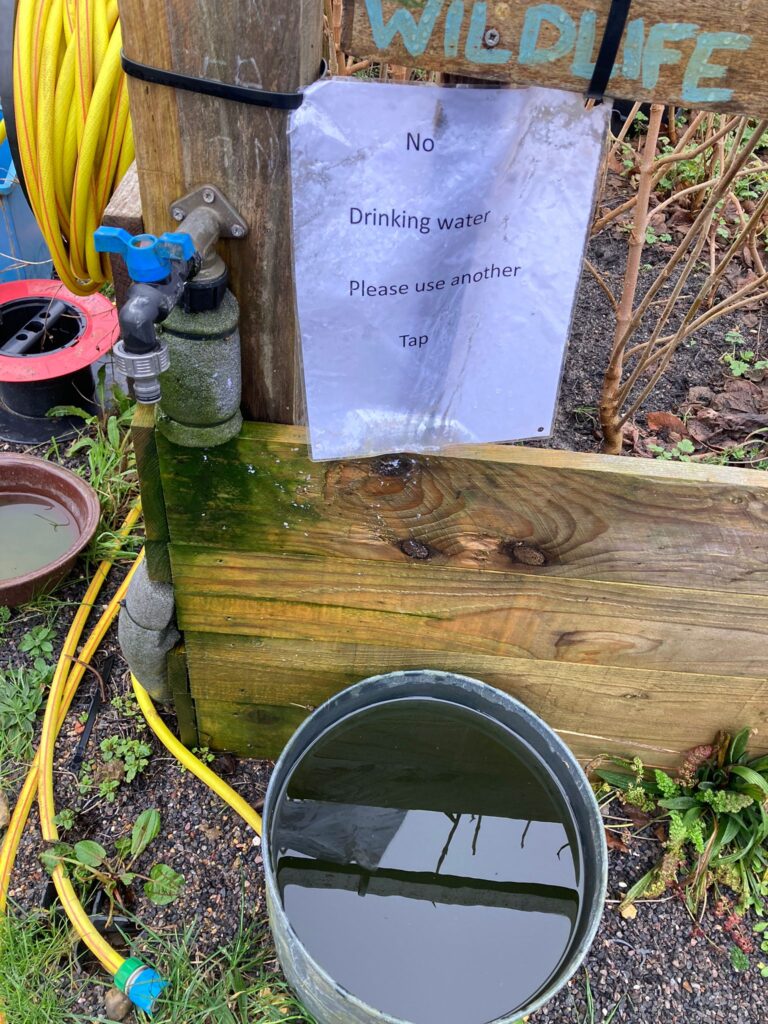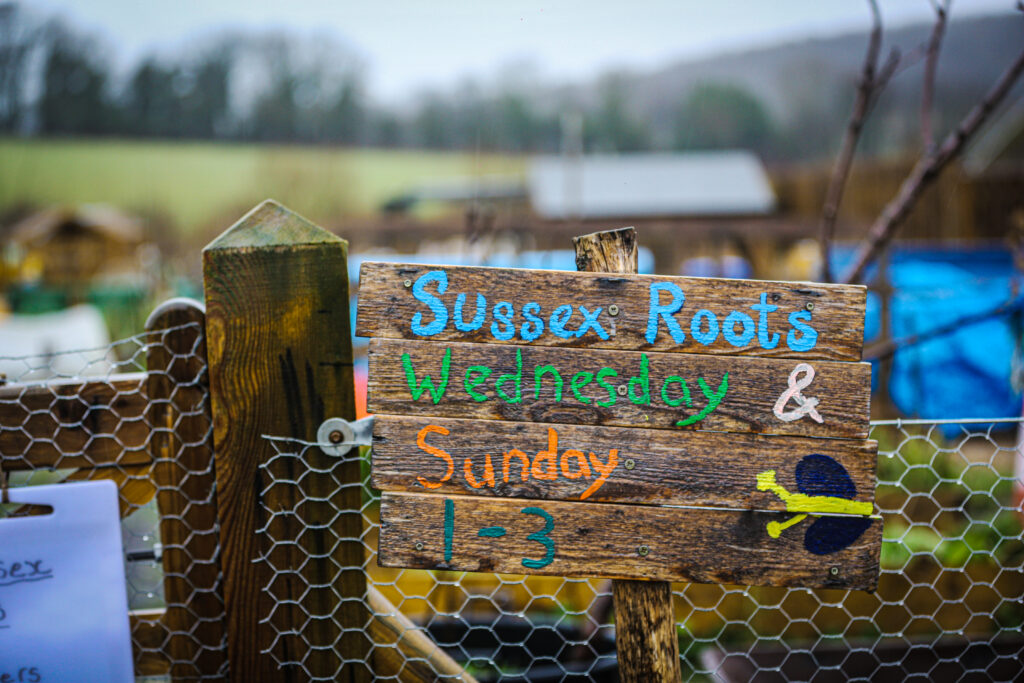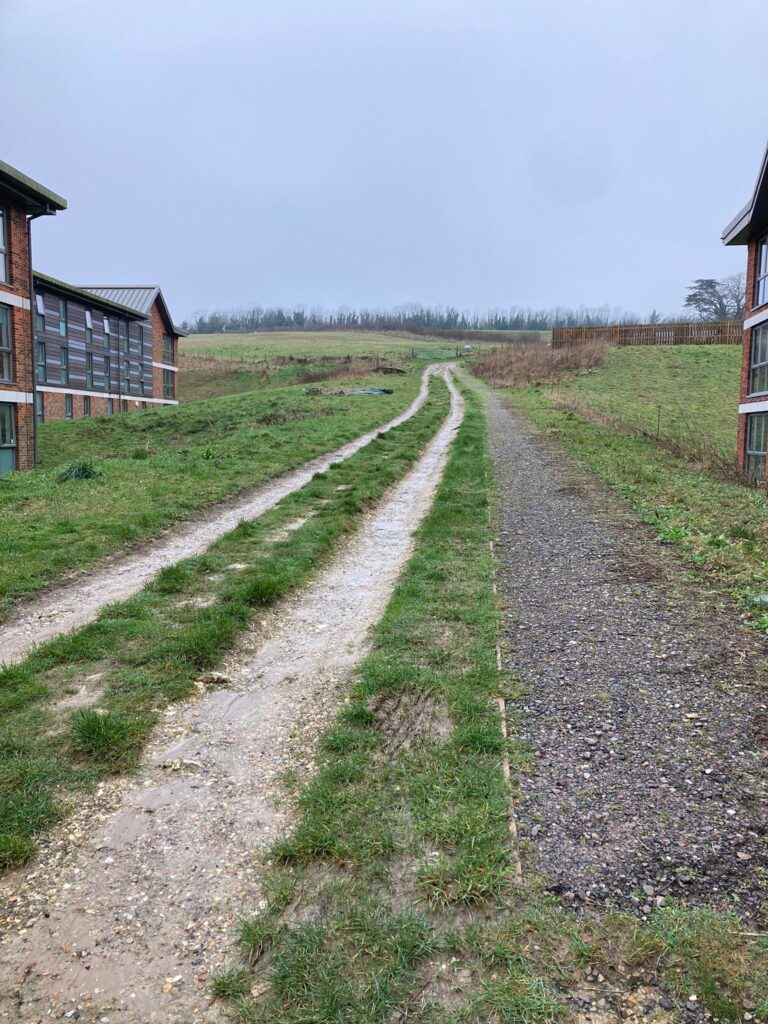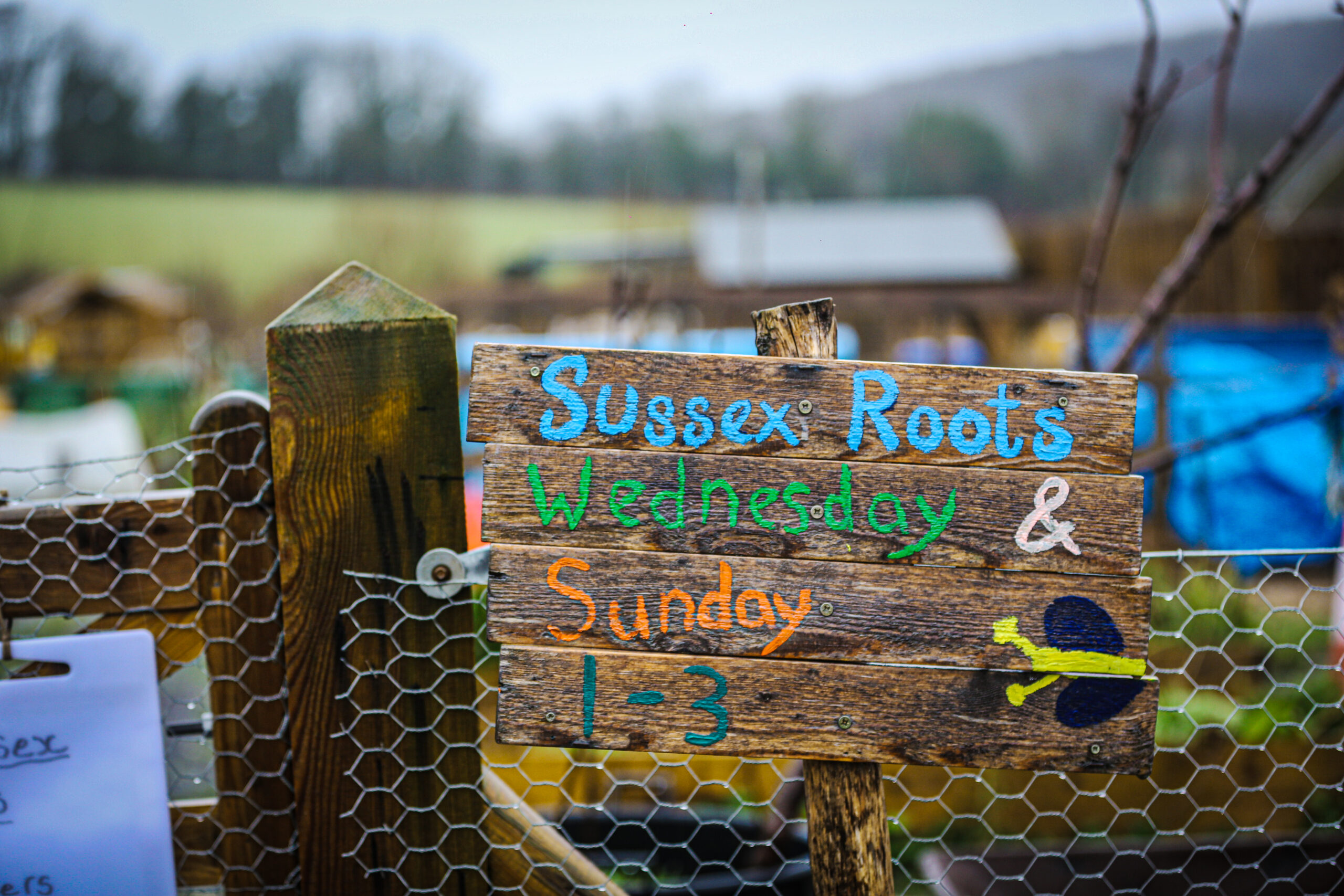Written by: Ada Carpenter, Senior Editor and Laura Mellena, Staff Writer
The communal gardening society, Roots, has launched a campaign against the University administration after being forced to relocate to an unsuitable and inaccessible site to make way for the West Slope development project. The new location has caused numerous issues including potential health implications for students. The allegations and evidence against Sussex Estates and Facilities (SEF) and Better Campus raise questions about the commitment of the University to its Sustainability Strategy pledges.
Roots society runs a communal gardening allotment on campus open to anyone interested, which was previously located on the Park Village site. Upon the initiation of the West Slope development, Roots was told they must relocate, and that “the relocation would include equal or better facilities.” An area was provided behind Northfield, where the allotment is currently located. The Badger spoke to Alex Roberts, Roots Cooperative Treasurer and Project Lead, about the problems the relocation has caused. There are four main issues: first, the highly biodiverse old allotment has been bulldozed; second, the new site does not have access to drinking water, a fact which was obscured from Roots members until recently; third, the new site has poor accessibility; and finally, that the University is “exploiting the Roots Cooperative as a source of greenwashing”.

On the first issue, Roberts explained that Roots members had been assured by the West Slope development team that the project “would build around the old [Park Village] allotment area, and keep it as a conservation area” after Roots pointed out that it had the highest biodiversity on campus. Instead, the area has been bulldozed. The University claims that “the preservation of the previous garden site for biodiversity was not covered in the scope or removal plans,” but it is clear that there has been at minimum a misunderstanding. In an update in December 2023, a Better Campus spokesperson said, “[West Slope] has been guided by both our commitments to accessibility for all and our aspirations to be one of the most environmentally sustainable universities in the UK.” Whether or not the new development will create new “natural” areas, the destruction of a long-standing biodiverse site will make the net environmental impact negative, an issue that seems to have been swept under the rug of “green development” assurances.
Secondly, there has been a potential breach of safety regulations surrounding the supply of potable (drinking) water at the Northfield site. The new Roots allotment has a water tap that has been used continuously since the move not only to water plants but also for making food and warm drinks at the site’s fire pit. This was always the intention of the Roots allotment, and the West Slope development team knew of this intended function. However, Roots members were recently made aware that the water is not safe for human consumption, a fact that was previously not indicated by signage or otherwise. After one year of knowing the safety risks, the University has only recently put up a paper sign that is already damp and falling apart.
SEF has stated that it “won’t supply drinking water because it was not the scope of the design”. A University spokesperson also told The Badger that “the initial project did not include a request for drinking water. A request was later received by the University but once the project had closed.” However, Roberts says that the plans Roots members were shown simply indicated a “water supply,” and they were never told it wouldn’t be potable. In fact, he points out that the water tap is supplied through a blue HDPE pipe, which is normally used for drinking water, and asks why that would be the case if the project planning team had never intended to make it potable, as they claim. Roberts also raised the questions of why the project was closed without ongoing monitoring with Roots members, and why the original project documents are now being withheld.

SEF has told Roots that ensuring that the water is drinkable “would require a very intensive flushing and testing regime to keep the water safe for drinking, [for which the] cost would be very high.” However, a regulatory official from Southern Water, who visited the site after Roots contacted them directly, said this information was inaccurate. In fact, flushing is a simple procedure that can be done by students via bed watering, whilst checking for legionnaires is an annual procedure that is required to ensure that water is free from legionella and other bacterial growth. Managing that process for the water tap would be no more difficult than for an indoor water supply. Given this revelation, Roberts now believes that the University has “lied repeatedly to students about what is and is not possible.”
Another problem that has not been solved is the accessibility of the allotment. The route leading to it, near Northfield Block 11, is a muddy gravel path that is steep and uneven – difficult for people with physical disabilities. The University stated in March 2023 that they would conduct an audit of the situation, but an audit only occurred ten months later thanks to the proactivity of the SU Student Living and Sustainability Officer, Niamh Tickner. The Roots site has wheelchair-accessible beds and wide paths, but people with mobility issues struggle to reach the site because of the path.
The Roots members have launched a campaign to raise awareness of these issues, along with a petition (https://forms.gle/xJ7GtbJs9F66jrYb8). They demand a drinking water tap on site, a new accessibility audit, an accessible route to the plot, and for the Roots allotment to be added to the campus maps. In addition to that, they call for a commitment from the University to protect the Roots site as a conservation area.
Roberts says: “We call on the University to answer to their failure to provide any meaningful or ongoing engagement or support for this organisation, a pattern of behaviour running counter to the claims of its officially published sustainability strategy and reports.” The University has used the hard work of the society’s members, who volunteer to run workshops on sustainable food production independently of the administration, and “gleefully put them on their sustainability reports.” If these issues are not addressed, the sustainability reports risk becoming a greenwashing campaign.

In response to the allegations, a University of Sussex spokesperson told The Badger: “We have worked in full consultation with the Students’ Union and Roots to relocate the student garden to Northfield. The scope of the initial project was to replicate the original garden but we have also sought to improve the site for our students by installing larger gravel paving, a double entrance gate, a fire pit area, additional raised beds, a fruit cage, a larger shed, and improved access paths.”
“We’ve provided a full costing of [the work include drinking water] to the Students’ Union for them to consider funding as a priority from their block grant, but, to date, have received no request to start work.”
It seems, yet again, that the University is shifting the blame. If student organisations and societies are not listened to, they will not be able to continue to provide opportunities for new people. Roots members are now considering suing the University if their demands are not addressed, because as Roberts put it – “morale is low, our facilities are unfit for purpose, and the energy other societies put into growing and thriving, has been sunk into simple survival for Roots.”

